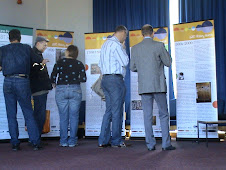To ensure that LGBT people’s heritage does not become ‘closeted rarities’ here in the South West Peninsula we at Intercom Trust propose to guarantee that the cultural heritage of LGBT people and their communities find exhibition space and representation.
The representation of LGBT heritage will have positive implications on knowledge, imagery and documentation of mayor aspects of our everyday communities lives and histories. The idea that gay men are ‘effeminate’ or lesbian women are ‘butch’ still exists after hundreds of years. The exhibitions we propose will show that LGBT people process common traits, common talents, and common goals, helping to re-establish LGBT peoples’ past connections to a wider audience.
Exhibitions will include, aesthetic, and educational discourses relating to LGBT people and their communities here in the South West Peninsula. We do not propose to have any political motivation for an exhibition during LGBT History Month; we simply hope to show the aesthetics of sexuality and sexual orientation; the cultural identities and environments in which LGBT people lived and live. We wish to convey passion - to celebrate those moments when LGBT people and communities could reach out and where and when they felt they could not. We would like to show how LGBT people and communities can, 'thrill us as much as they matter and matter as much as they thrill'. (Andy Medhurst 1995)
The cultural heritage of lesbian, gay, bisexual and transgender people and communities, have had to build up signs and symbols; whether they be objects, images, written or sounds including music, electronically produced material or in words. All of these represent to other people, concepts, ideas and feelings about LGBT people and to LGBT people and communities themselves; they have gone to make up a cultural heritage here in the South West Peninsula.
LGBT people have had an impact on Popular culture. They have produced and recorded popular music, produced/ published art and designed literature for activities and leisure time and entertainment. All of these activities have enabled LGBT people to express themselves, their thoughts and feelings in their local area - with the take off of Internet, around the world.
‘Closet rarities’ is something which until recently has been how LGBT Heritage has been perceived, or represented in museums; establishing the notion that LGBT people and their respective communities are (in part) not mayor contributors to cultural and/or economic environments. Representing a more readily available Heritage of LGBT people and their communities would give meaning to their 'our' identities and a sense of identity to those who are exploring or less confident of their own.
Taking LGBT Heritage out of the ‘closet’ and bringing it into the modern Museum structure art gallery, town hall, school or shop window will allow a greater cultural awareness, this uncloseted representation will enable a development of a language that includes rather than excludes identity, and representation of communities outside of the heterosexual norm.
‘Coming out’ signifies for many the process of ideas and feelings associated with the development of honesty and disclosure of sexual orientation and gender identity amongst the LGBT communities here and globally. The effects or consequences of this ‘coming out’ is political in meaning and has come to represent a powerful change in the historical practices which operate and regulate actual practice.
‘Painting in the Picture’ and re-visualising LGBT Heritage is only positive. To be involved and offer space for an exhibitions of this kind is positive. It will allow people from every background, cultural group, race or ethnicity to have an opportunity to view images, objects, written work etc. a living experience of the re-defining heritage; a piece of heritage in it’s self. This will have benefits for Museums, libraries and other public spaces, to 'actually' engagement with a LGBT National event, LGBT History Month (http://www.lgbthistorymonth.com/
Taking LGBT Heritage 'out' there.
Thursday, 9 August 2007
Subscribe to:
Comments (Atom)



